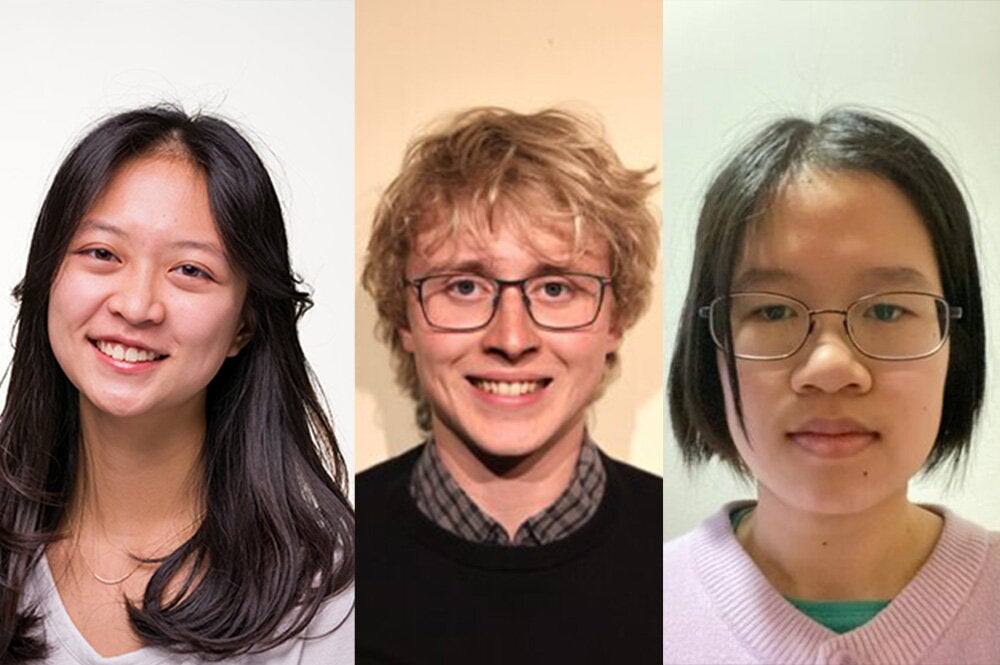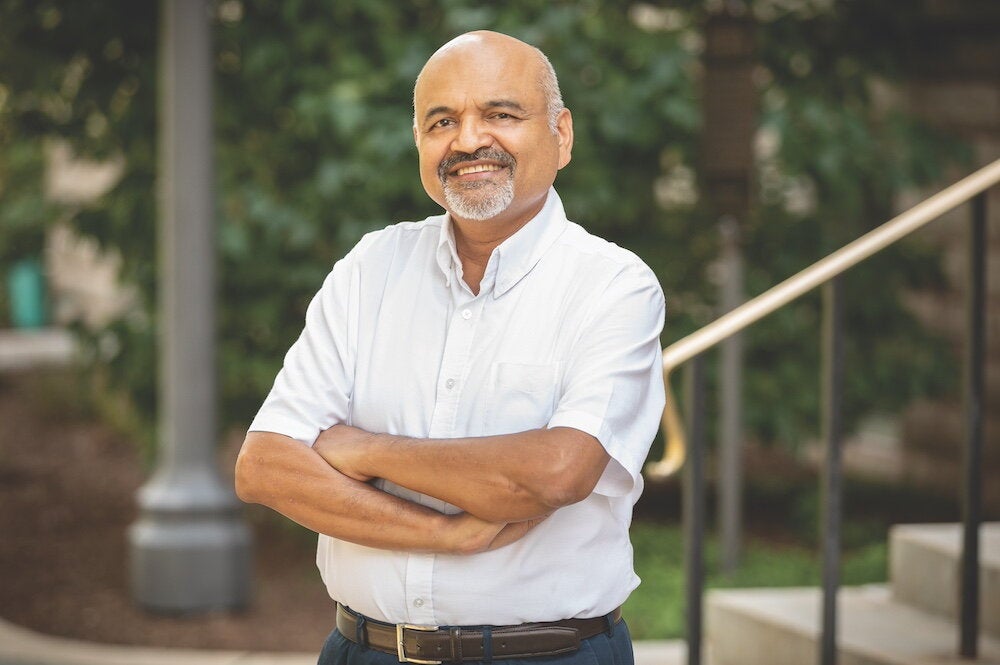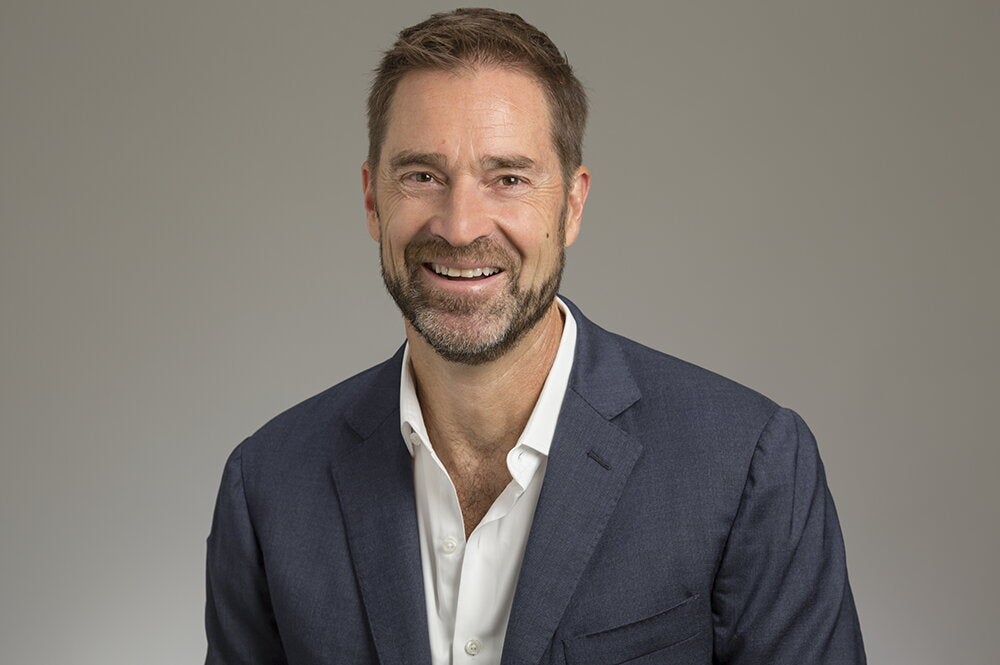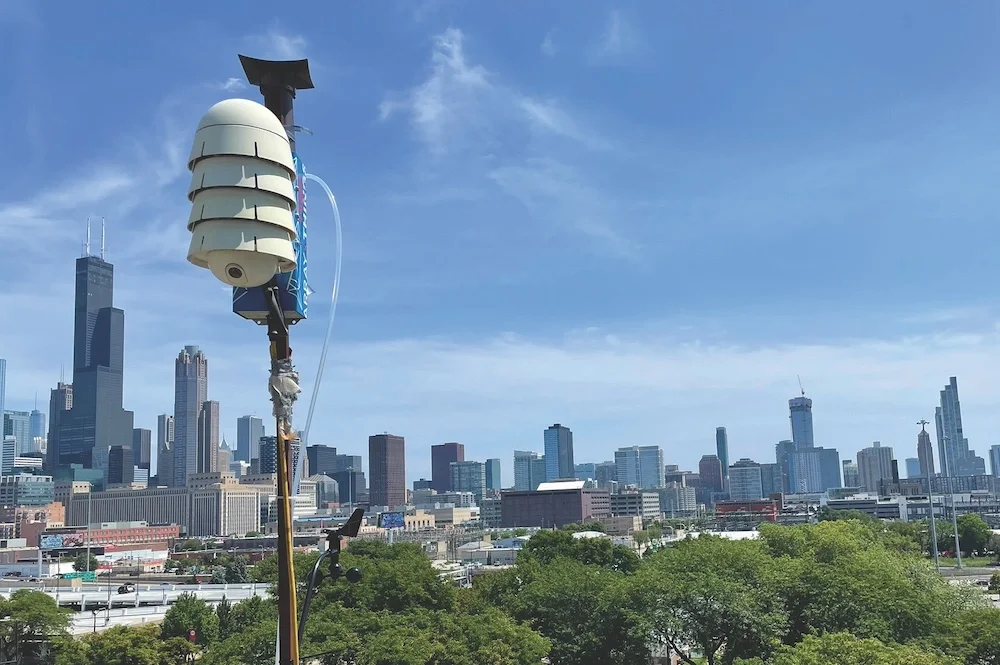
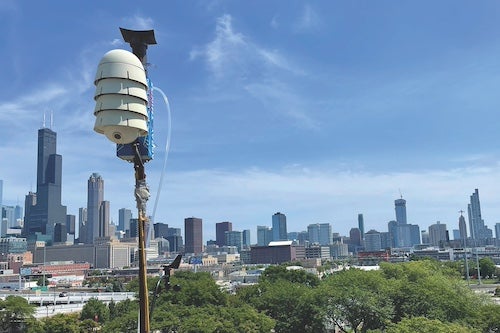
From deep-dish pizza to towering skyscrapers, Chicago is a city like no other. Nearly 3 million people call it home, making it a hub of economic development, culture, and groundbreaking research. And for decades, the College of Liberal Arts & Sciences has played a meaningful role there.
Here’s a snapshot of some of the LAS research and engagement initiatives currently unfolding in the City of Big Shoulders, ranging from atmospheric research on urban climate change to exciting programs that prepare young people for successful tech careers. Whether it’s fighting disease, studying the impact of green shipping, or efforts to celebrate the city’s rich history and ethnic culture, it all reflects a vision of service in Chicago that began long ago.
“Scholars from multiple disciplines in the College of LAS have been doing research in Chicago for decades,” said Cari Vanderpool, associate dean for research in LAS. “By studying the people, culture, and history of Chicago, we learn new lessons that can help us address modern societal challenges. Bringing those lessons together with technological and scientific discoveries, LAS researchers are driving innovations that improve standards of living in Chicago and elsewhere.”
Fighting disease through the Chan Zuckerberg Biohub Network
Last fall, Illinois Gov. J.B. Pritzker and leaders from the Chan Zuckerberg Initiative launched the latest center in a growing network of biohubs designed to understand the underlying mechanisms of disease. Research in Chicago will use embedded sensor technology to monitor disruptions to molecular and cellular signals to better understand and treat a wide range of diseases, including cancer, heart disease, Alzheimer’s, and severe infectious diseases such as COVID. The project includes a $250 million investment from the Chan Zuckerberg Initiative and a $25 million capital commitment from the state.
Several people from LAS and elsewhere on campus have significant roles with the Biohub. Susan Martinis, vice chancellor for research and innovation and Stephen G. Sligar Professor of Molecular and Cellular Biology, played a leadership role in developing the Biohub proposal. Gene Robinson, director of the Carl R. Woese Institute for Genomic Biology and Swanlund Chair in Entomology will have a leadership role in the project.
Jonathan Sweedler, acting head of the Department of Chemistry, said the Biohub will complement work he does in the study of brain chemistry. He said U of I’s expertise in a wide range of subjects helped seal the deal, which also includes the University of Chicago and Northwestern University.
“It’s inherently designed to cross disciplines and be broad,” he said. “It needed chemistry. It needed engineering. It needed biology. It would not have succeeded with just one area.”
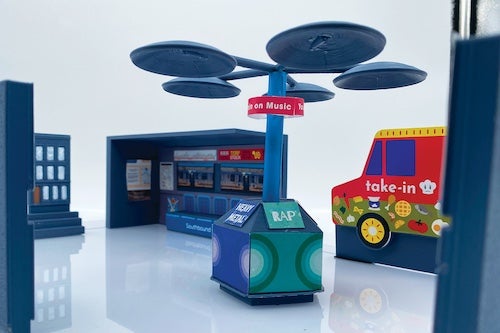
Creating community healthcare workers
“We have a long history of taking the knowledge of our faculty into the field,” said Ruby Mendenhall, professor of sociology and African American studies and associate dean for diversity and democratization of health innovation at the Carle Illinois College of Medicine. “But I argue that one of the 21st century missions of the land grant is to go into communities that were traditionally underserved — Black and Brown communities — and bring them in.”
That’s exactly what Mendenhall is doing in Chicago through a new initiative, funded by a MacArthur grant. The program is designed to reduce disparities in healthcare by creating a culture of innovation centered around the health and wellness of high school students and young adults living in neighborhoods with low-incomes and a high incidence of gun violence.
The program has many facets, from the creation of a stress-reducing “wellness space” at Wendell Phillips High School to community health worker training for high school students who create wellness tools, including music/art and phone apps, that foster healing from racial trauma and gun violence.
The program is interdisciplinary, connecting students to different healing modalities. For example, the trained youth community health workers are working with the SuperHero project to create a comic book based on characters experiencing mental and physical health challenges due to disease, community violence, etc. This includes characters such as Ashanti, a Black female superhero who fights for justice and an end to violence through peace and love.
Mendenhall hopes this work will lead to the creation of dual-credit courses at the U of I and provide a pathway for students to pursue careers in mental health, social work, and medicine.
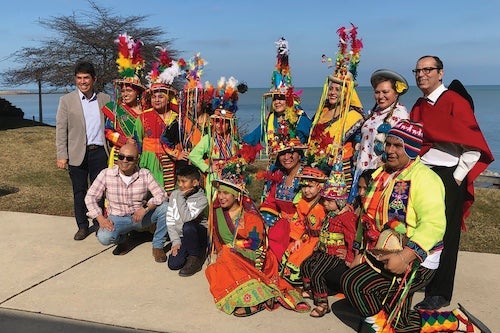
Examining how we move freight
How will moving away from diesel-powered trucking impact urban communities? That’s the question at the heart of a study to explore the implications of new technology and electrified freight vehicles.
Using surveys, citizen scientists, and a network of sensors, the EPA-funded study will develop various adoption scenarios and project their potential impact on the community. Research will focus on Chicago’s Little Village neighborhood and include members of the Little Village Environmental Organization.
“Projects like these are vital to understanding how initiatives like this impact particular communities and how those effects can be mitigated,” said Julie Cidell, professor and head of the Department of Geography & Geographic Information Science. “We need science to do that, and we need community expertise to bring that down to the ground and improve conditions for those whose air is polluted and whose neighborhood streets are full of trucks.”
Better preparation for tech careers
The summer Digital Scholars program allows Chicago high- schoolers and incoming college freshmen to take college-level courses in computing and data science. Run by the U of I System’s Discovery Partners Institute (DPI), in partnership with the College of LAS, UIC Chicago, and Grainger College of Engineering, Digital Scholars helps provide women and minorities with better access to tech pathways and careers, thanks to funding from companies like Apple and Amazon.
Karle Flanagan, a teaching associate professor and director of inclusive data science education in the Department of Statistics, adapted U of I’s Stats 107 course for the summer program. The class is taught by statistics graduate students and undergraduate teaching assistants.
“Data science is the future,” Flanagan said, “and providing students with a meaningful experience in data science education is something I believe is incredibly important.” More than 300 students have accessed the program, with 75 percent of those being Black or Latinx and almost 40 percent female. This year Digital Scholar students received a micro-credential badge for their participation, which was developed by Flanagan and Grainger faculty member Wade Fagen-Ulmschneider.
“The involvement of LAS and the data science course has been a tremendous addition to the program, which has allowed students to gain skills and awareness in data science and to U of I’s interdisciplinary programs of study in that field,” said DPI Pritzker Tech Talent Labs director Mark Harris.
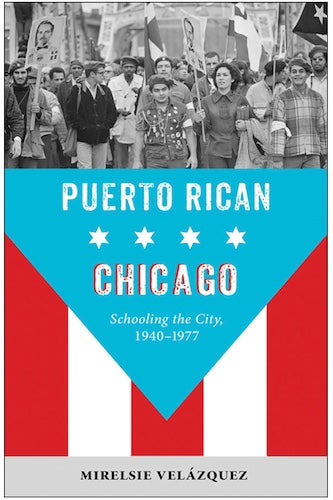
Understanding Puerto Rican Chicago
Sometimes we make history. And sometimes our role is to offer insights on the moments that shape it. In her book, “Puerto Rican Chicago: Schooling the City 1940-1977,” Mirelsie Velázquez explores the educational system in Chicago and its impact on one community forging its identity.
“Puerto Ricans are often pushed to the footnotes of history or written about from an outsider perspective,” said the professor of Latina/o studies and Puerto Rican immigrant. “My aim was to tell a community history that centered on hope.”
For Velázquez, that hope is exemplified by the strong women who helped shape the Puerto Rican community in Chicago, using their education to challenge a system they believed
was harming their children — and build something better.
“What makes Chicago an amazing city is its people,” said Velázquez. “My hope is that when folks read the book, they see how important our community is to the telling of that story.”
A celebration of Andean culture
Chicago is home to a vibrant Andean community, with individuals from Peru, Bolivia, and Ecuador, bound by their Quechua heritage. In February 2023, Carlos Molina-Vital, Quechua instructor at the Center for Latin American & Caribbean Studies (CLACS), helped celebrate that heritage with an Andean Carnival Tinkuy festival, held at Loyola University Chicago. The full-day event featured traditional food, dance showcases, attire exhibitions, Quechua language workshops, and discussions on Andean spirituality. Around 300 attended the event, which included an Andean Market activity organized by local fifth-graders.
“Empowering Indigenous communities to preserve their culture in urban settings like Chicago is crucial,” said Gisela Sin, professor of political science and CLACS director. “The collaboration with academic institutions reassures these communities of support and amplifies the value of their language and culture beyond rural traditions, encouraging pride and reaching new generations.”
Community research on climate and urban science
Extreme weather can be devastating for large cities. To help understand and prepare for those events, the U.S. Department of Energy recently awarded a $25 million grant to the Argonne National Laboratory and a team of academic and community leaders including LAS scientists to study climate in Chicago.
The goal of the Community Research on Climate and Urban Science initiative is to improve the resilience of urban communities facing extreme heat, poor air quality, and flooding accelerated by climate change. Using a network of sensors, the team will monitor climate variability and help researchers understand how weather impacts the city and how design choices such as green roofs impact climate.
Steve Nesbitt, head of the Department of Climate, Meteorology & Atmospheric Sciences, leads the project along with atmospheric sciences professors Deanna Hence and Karen Kosiba and civil and environmental engineering professor Marcelo Garcia. He said the sensors will allow researchers to analyze climate data in detail, down to the city block.
Like others who do scholarship and research in Chicago, Nesbitt sees a greater calling in his work.
“The University of Illinois Urbana-Champaign is Illinois’ flagship university campus and serves a land-grant mission to provide scientific and technical education to the people of Illinois,” he said. “We have a duty to help improve the lives of people across the state and around the world.”
Editor's note: This story originally appeared in the Spring 2024 issue of The Quadrangle.
